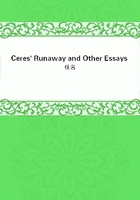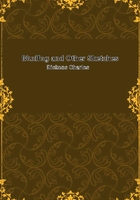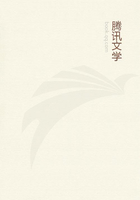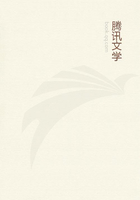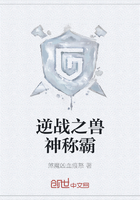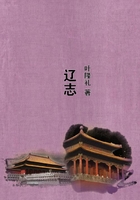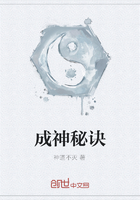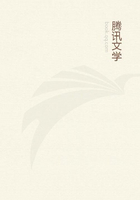The Arabs generally adhere strictly to their ancient customs, independently of the comparatively recent laws established by Mahomet. Thus, concubinage is not considered a breach of morality; neither is it regarded by the legitimate wives with jealousy. They attach great importance to the laws of Moses, and to the customs of their forefathers; neither can they understand the reason for a change of habit in any respect where necessity has not suggested the reform. The Arabs are creatures of necessity; their nomadic life is compulsory, as the existence of their flocks and herds depends upon the pasturage. Thus, with the change of seasons they must change their localities, according to the presence of fodder for their cattle. Driven to and fro by the accidents of climate, the Arab has been compelled to become a wanderer; and precisely as the wild beasts of the country are driven from place to place either by the arrival of the fly, the lack of pasturage, or by the want of water, even so must the flocks of the Arab obey the law of necessity, in a country where the burning sun and total absence of rain for nine months of the year convert the green pastures into a sandy desert. The Arabs and their herds must follow the example of the wild beasts, and live as wild and wandering a life. In the absence of a fixed home, without a city, or even a village that is permanent, there can be no change of custom. There is no stimulus to competition in the style of architecture that is to endure only for a few months; no municipal laws suggest deficiencies that originate improvements. The Arab cannot halt in one spot longer than the pasturage will support his flocks; therefore his necessity is food for his beasts. The object of his life being fodder, he must wander in search of the ever-changing supply. His wants must be few, as the constant changes of encampment necessitate the transport of all his household goods; thus he reduces to a minimum the domestic furniture and utensils. No desires for strange and fresh objects excite his mind to improvement, or alter his original habits; he must limit his impedimenta, not increase them. Thus with a few necessary articles he is contented. Mats for his tent, ropes manufactured with the hair of his goats and camels, pots for carrying fat; water-jars and earthenware pots or gourd-shells for containing milk; leather water-skins for the desert, and sheep-skin bags for his clothes,--these are the requirements of the Arabs. Their patterns have never changed, but the water-jar of to-day is of the same form that was carried to the well by the women of thousands of years ago. The conversation of the Arabs is in the exact style of the Old Testament. The name of God is coupled with every trifling incident in life, and they believe in the continual action of Divine special interference. Should a famine afflict the country, it is expressed in the stern language of the Bible--"The Lord has sent a grievous famine upon the land;" or, "The Lord called for a famine, and it came upon the land." Should their cattle fall sick, it is considered to be an affliction by Divine command; or should the flocks prosper and multiply particularly during one season, the prosperity is attributed to special interference.
Nothing can happen in the usual routine of daily life without a direct connexion with the hand of God, according to the Arab's belief.
This striking similarity to the descriptions of the Old Testament is exceedingly interesting to a traveller when residing among these curious and original people. With the Bible in one hand, and these unchanged tribes before the eyes, there is a thrilling illustration of the sacred record; the past becomes the present;the veil of three thousand years is raised, and the living picture is a witness to the exactness of the historical description. At the same time, there is a light thrown upon many obscure passages in the Old Testament by the experience of the present customs and figures of speech of the Arabs which are precisely those that were practised at the periods described. Ido not attempt to enter upon a theological treatise, therefore it is unnecessary to allude specially to these particular points.
The sudden and desolating arrival of a flight of locusts, the plague, or any other unforeseen calamity, is attributed to the anger of God, and is believed to be an infliction of punishment upon the people thus visited, precisely as the plagues of Egypt were specially inflicted upon Pharaoh and the Egyptians.
Should the present history of the country be written by an Arab scribe, the style of the description would be purely that of the Old Testament; and the various calamities or the good fortunes that have in the course of nature befallen both the tribes and individuals, would be recounted either as special visitations of Divine wrath, or blessings for good deeds performed. If in a dream a particular course of action is suggested, the Arab believes that God has spoken and directed him. The Arab scribe or historian would describe the event as the "voice of the Lord"("kallam el Allah"), having spoken unto the person; or, that God appeared to him in a dream and "said," &c. Thus much allowance would be necessary on the part of a European reader for the figurative ideas and expressions of the people. As the Arabs are unchanged, the theological opinions which they now hold are the same as those which prevailed in remote ages, with the simple addition of their belief in Mahomet as the Prophet.
There is a fascination in the unchangeable features of the Nile regions. There are the vast Pyramids that have defied time; the river upon which Moses was cradled in infancy; the same sandy deserts through which he led his people; and the watering-places where their flocks were led to drink. The wild and wandering tribes of Arabs who thousands of years ago dug out the wells in the wilderness, are represented by their descendants unchanged, who now draw water from the deep wells of their forefathers with the skins that have never altered their fashion. The Arabs, gathering with their goats and sheep around the wells to-day, recall the recollection of that distant time when "Jacob went on his journey, and came into the land of the people of the east.
And he looked, and behold a well in the field; and, lo, there were three flocks of sheep lying by it, for out of that well they watered the flocks; and a great stone was upon the well's mouth.
And thither were all the flocks gathered; and they rolled the stone from the well's mouth, and watered the sheep, and put the stone again upon the well's mouth in his place." The picture of that scene would be an illustration of Arab daily life in the Nubian deserts, where the present is the mirror of the past.

